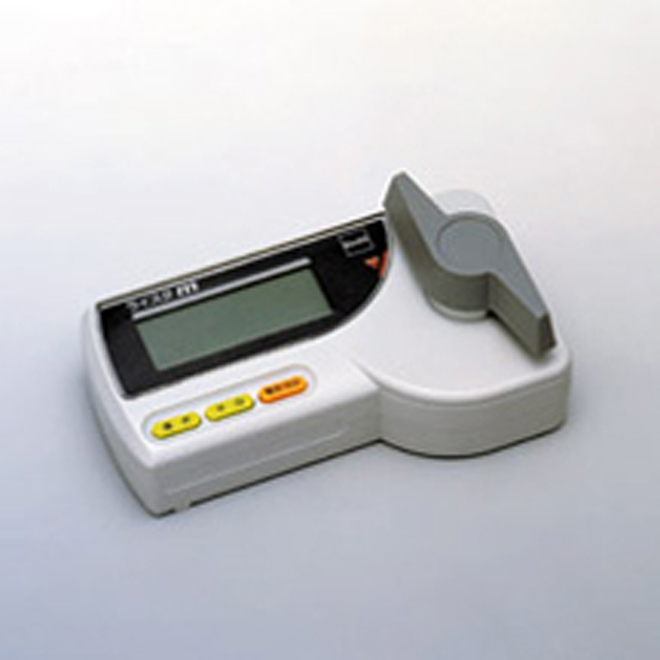Moisture Meter Reviews: Comparing the most effective Models for Specialist and DIY Usage
Moisture Meter Reviews: Comparing the most effective Models for Specialist and DIY Usage
Blog Article
The Ultimate Guide to Moisture Meters: A Comprehensive Overview and Just How They Can Conserve You Cash
Dampness meters serve as crucial tools in identifying and monitoring moisture content in materials, helping in preventing costly problems and making sure the quality of products. Understanding the nuances of various types of moisture meters, their applications, and the potential cost-saving benefits they use can be a game-changer for experts and services alike.
Kinds Of Wetness Meters
One typical type is the pin-type wetness meter, which gauges the electric resistance in between 2 pins placed into a product. Pinless wetness meters, on the other hand, use electro-magnetic sensing unit plates to scan a larger location without causing damages to the material's surface.

Infrared wetness meters gauge the thermal homes of a product to establish its moisture material non-invasively, making them useful for applications where pin or pinless meters may not be ideal. Understanding the different kinds of moisture meters offered can aid industries select the most appropriate tool for their certain dampness measurement requirements.

Advantages of Utilizing Dampness Meters
Dampness meters provide vital advantages in accurately evaluating and keeping an eye on dampness degrees in diverse materials and atmospheres. One of the main benefits of utilizing wetness meters is the avoidance of potential damage caused by excess dampness.
Furthermore, utilizing dampness meters can cause enhanced power efficiency. By identifying areas with high dampness degrees, such as leaks or poor insulation, changes can be made to enhance power conservation and lower energy costs. In farming settings, wetness meters play a vital function in optimizing plant yields by enabling farmers to keep an eye on soil wetness degrees and make notified watering choices. In general, the advantages of making use of wetness meters extend across various markets, giving cost-efficient solutions and promoting better quality control practices.
Just How to Pick the Right Wetness Meter
Choosing the proper dampness meter includes thinking about essential variables such as material compatibility, measurement array, and calibration accuracy. When choosing a wetness meter, it's important to guarantee that the meter appropriates for the particular material you will be testing. Various products have varying electrical residential or commercial properties that can influence dampness analyses, so picking a meter created for your material is essential for accurate results. Furthermore, think about the measurement array of the dampness meter. Make sure that the meter can find dampness levels within the variety required for your applications. Calibration precision is one more essential variable to bear in mind. Choose a dampness meter with trustworthy calibration to make sure consistent and specific analyses. Some meters might require regular calibration changes, so comprehending the calibration procedure is essential. By thoroughly reviewing these elements, you can pick a wetness meter that satisfies your demands and provides accurate wetness measurements for your jobs.
Appropriate Strategies for Dampness Meter Use

Expense Financial Savings With Wetness Meter Applications
How can the tactical usage of dampness meters bring about substantial price weblink savings throughout numerous industries? Wetness meters play a crucial role in cost financial savings by avoiding potential damages and ensuring quality assurance in different fields. In the agriculture market, wetness meters help in determining the optimum time for harvesting crops, stopping over-drying or excess moisture that can affect the final here are the findings item's quality. This accurate monitoring helps farmers stay clear of unneeded losses and optimize their yield.
Likewise, in construction, moisture meters assist protect against pricey problems by spotting wetness degrees in structure products, such as wood or concrete, which can lead to architectural concerns otherwise attended to without delay. By determining problem areas early on, professionals can take restorative procedures to stay clear of extensive repair work or substitutes, inevitably saving time and money.
Furthermore, in the food handling market, moisture meters are essential for checking item quality and making sure conformity with security policies. By properly measuring moisture material in foodstuff, producers can protect against perishing, preserve freshness, and lower waste, leading to considerable price savings. Overall, the tactical application of dampness meters is a valuable investment that can lead to substantial cost reductions and enhanced effectiveness across various industries.
Conclusion
In conclusion, wetness meters are valuable tools for determining and finding wetness degrees in numerous materials. By using the ideal wetness meter and adhering to appropriate strategies, users can successfully stop pricey damages created by excess dampness.
Wetness meters offer as vital tools in spotting and keeping track of moisture web content in products, assisting in protecting against expensive problems and ensuring the high quality of items. Infrared moisture meters measure the thermal anchor residential properties of a material to identify its moisture web content non-invasively, making them helpful for applications where pin or pinless meters might not be ideal.Dampness meters provide indispensable advantages in properly keeping an eye on and analyzing moisture degrees in varied materials and atmospheres. In farming setups, dampness meters play a crucial function in enhancing crop returns by enabling farmers to keep track of dirt wetness levels and make educated watering decisions.In final thought, wetness meters are useful devices for measuring and discovering dampness degrees in different products.
Report this page